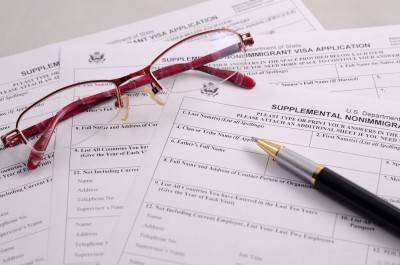 Immigration lawyer questions to ask will depend on the individual situation, there are approximately 185 different types of visas, which are split into two categories. The two categories are the immigrant and nonimmigrant and these classes make a difference in why the person has been approved for a visa and how long they may remain in the United States. The immigration visa can be approved for many reasons and is for a longer duration of time in the country, than the nonimmigrant visa.
Immigration lawyer questions to ask will depend on the individual situation, there are approximately 185 different types of visas, which are split into two categories. The two categories are the immigrant and nonimmigrant and these classes make a difference in why the person has been approved for a visa and how long they may remain in the United States. The immigration visa can be approved for many reasons and is for a longer duration of time in the country, than the nonimmigrant visa.
The nonimmigrant visa is mainly for individuals that are visiting or that are a foreign worker for a temporary or seasonal position. This is a type of visa that a student or individual who will have special training would apply for, such as the J-1 Wavier and visa that is for medical professionals to work and train in the U.S. These visa holders are able to apply to the USCIS for extensions to lengthen the time they are able to remain in the United States, but cannot become a permanent resident with this class of visa. The immigrant visa applicant is different, this is the individual that could be a fiancé or wanted to immigrate to the United States and at some point become a permanent resident or apply for citizenship. Another type of visa is for the investor that would like to open a business in the United States and employ Americans in their business.
Anyone applying for a visa will have questions and those questions will be the same if they need to apply for an extension or renew their visa. This is when there are immigration lawyer questions to ask that will need answers about the USCIS process. Any issues with the United States Customs and Immigration Service can be overwhelming for the individual and the legal advice can prevent errors in the application and document submission process.
In some cases the individual with questions for the immigration lawyer Colorado expert, is the family or employer that has filed a petition or is attempting to file a petition to be approved by the USCIS to bring a foreign national to the U.S. In this instance the petitioner must file the proper form and have it approved prior to the foreign national applying for a visa at a U.S. Consulate or Embassy in their country.


